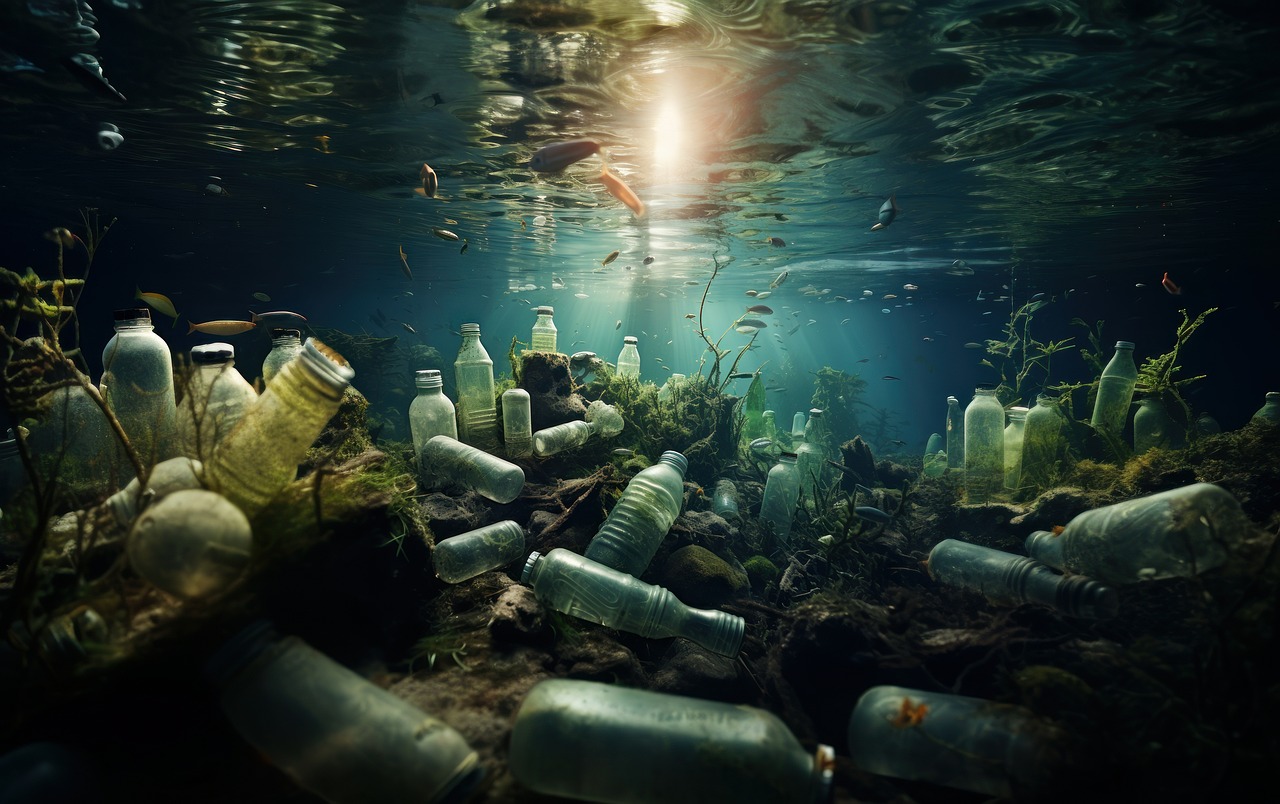We need to tackle plastic pollution by developing creative new technologies to deal with it.
The seas have been awash with plastic waste, which can take decades, centuries and even millennia to degrade. This poses great risks to the health of marine ecosystems, but tiny bacteria can come to the rescue, at least to some extent.
A strain of bacteria found in sea water can degrade a type of plastic that otherwise resists microbial breakdown, scientists in Japan have discovered.
This plastic is the common polymer polybutylene succinate (PBS), which is generally regarded as an ecofriendly polymer because it naturally biodegrades when exposed to the elements; however, in marine environments it does so to only a limited extent.
The biodegradability of PBS has led to an increase in its use since the early 1990s in industrial plastics, including mulching films, compostable bags and packaging. However, many of these discarded plastic items wind up in the oceans where they then remain permanently.
In order to see what microorganisms can degrade PBS, scientists at Hokkaido University and their colleagues at the Mitsubishi Chemical Group in Japan decided to investigate. They did this by examining the effects of microbes gathered from natural seawater off the coasts of Japan to identify several types of marine bacteria that could do the job.
In the process they identified the enzyme responsible for degrading PBS in a specific strain of bacteria called Vibrio ruber. They named the enzyme PBSase. The scientists then used molecular biological techniques to insert the gene for PBSase into the common bacterium Escherichia coli, which they cultured to produce highly purified samples of the enzyme, as they detail in a study.
“Elucidating the degradation mechanism in seawater at the molecular level may lead to the development of new marine biodegradable polymers,” explains Yasuhito Yamamoto, Sawabe’s collaborator at Mitsubishi Chemical Corporation of the Mitsubishi Chemical Group.
“This enzyme could be used as a decomposition accelerator or catalyst for chemical recycling of collected waste plastics,” Yamamoto adds.
The purified enzyme allowed the researchers to examine its structure and their simulations suggest it is closely related to a different enzyme known to degrade another common polymer: polyethylene terephthalate (PET).
“By exploring the enzyme’s activity in degrading other polymers, such as PET, we hope that our work will contribute more widely to advances in plastic recycling technologies,” notes Tomoo Sawabe, who led the research team at Hokkaido University’s Faculty of Fisheries Sciences.
“This research is part of wider efforts to address the complexity of biodegradable polymer technologies caused by their differing biodegradability on land and in the sea,” the researchers explain in a statement on their findings. “By learning more about what controls biodegradability in different environments, scientists will hopefully develop polymers that are best suited to the environments they are used in and those that they may end up in after use.”
Sawabe adds: “Plastic pollution in the ocean is a global problem and we need to tackle it by gaining new understanding of plastic behaviour in that environment, and new technologies to deal with the pollution.”
This story first appeared on Sustainability Times
© 2023 Sustainability Times.
This article is licensed under a Creative Commons Attribution-ShareAlike 4.0 SA International License.












